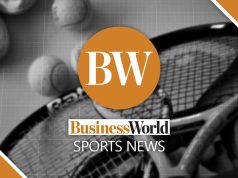Rafael Nadal began his quest for a third straight — and record-extending 12th — title at Roland Garros yesterday, and he couldn’t have done so under more favorable circumstances. He’s lumped in a relatively easier bracket that has him going up against qualifiers in his first two rounds and then, assuming things fall into place, against longtime nemesis but on-the-wane Roger Federer in the semifinals. And, what’s more, he has momentum, too, fresh off a triumphant run at the Italian Open; with a podium finish at stake, he wound up handing World Number One Novak Djokovic a first-ever bagel en route to a three-set victory.
True, Nadal won’t be negotiating the next fortnight with the same aura of invincibility that defined his earlier triumphs at the French Open. He may be only 32, but he’s a relatively old 32 with a self-punishing style of play that makes him routinely susceptible to injury. In recent memory, he has seemingly been in a continual state of convalescence from ailment after ailment. It’s why he appeared out of sorts early on in the clay-court season, absorbing Round-of-Four setbacks to Fabio Fognini, Dominic Thiem, and Stefanos Tsitsipas — all opponents he would have otherwise waxed on his best surface — at the Monte Carlo Masters and Barcelona and Madrid Opens, respectively.
Nonetheless, he’s not Rafael Freaking Nadal for nothing, and his exploits in the grandest stages on red clay underscore the extra gear he invariably finds with the Coupe des Mousquetaires at stake. And, no doubt, it factored in on his hot start and win against Djokovic in Rome. With the latter aiming for a second Nole Slam, he felt he needed to highlight his status as the de facto pacesetter in Paris notwithstanding the seeding and current point standings of the Association of Tennis Professionals Tour.
Indeed, talk in the sport’s circles centered on his evidently inconsistent form prior to his mastery of Djokovic. This year marked the first time since 2004 that he had failed to take a tournament prior to his Madrid stop, and even he sounded prepared to accept his increasing mortality inside the lines. “I have to accept things naturally,” he said then. After the Italian Open, however, he looked to be confident anew. “Win a title is important, but, for me, the most important thing is feel myself competitive, feel myself healthy, and then with the feeling that I am improving, no?” He definitely is, and, given his unparalleled history at Roland Garros, perhaps enough to carve a three-peat.
Anthony L. Cuaycong has been writing Courtside since BusinessWorld introduced a Sports section in 1994.



